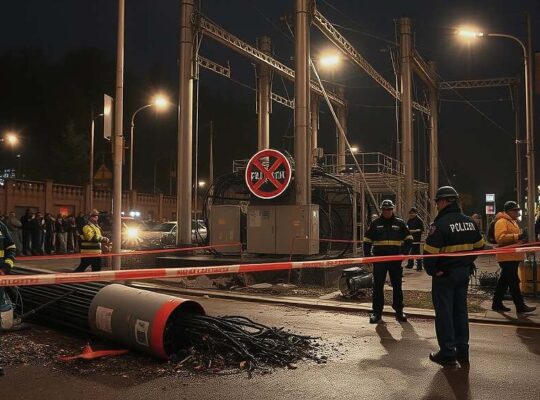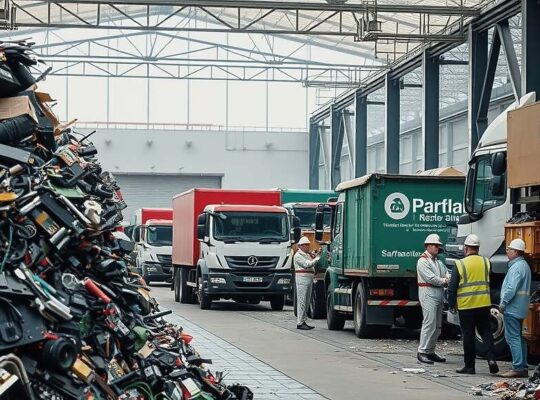The German government is scrambling to secure the future of DB Cargo, the freight transport subsidiary of national rail operator Deutsche Bahn, facing a looming insolvency threat and potentially significant political fallout. Transport Minister Patrick Schnieder (CDU) signaled a commitment to preventing the collapse of DB Cargo and diverting further freight traffic onto already congested roadways, but stopped short of guaranteeing a specific rescue package.
Schnieder, in an interview with the “Neue Osnabrücker Zeitung”, stressed his intention to retain government stakes in the struggling subsidiary, emphasizing the need for DB Cargo to formulate a viable restructuring plan first. The EU Commission has issued a stark ultimatum: DB Cargo must achieve profitability by the end of next year or risk the cessation of state aid, a scenario that would likely trigger insolvency proceedings.
The pressure is on the newly appointed DB Cargo management team to devise a turnaround strategy and Schnieder expressed confidence in their ability to succeed, while acknowledging the challenging circumstances. One potential, albeit controversial, pathway to solvency involves EU-compliant subsidies for individual wagon transport – a practice already employed by other European nations. While Schnieder refrained from explicitly endorsing this option, he indicated a willingness to consider “all possibilities” to ensure DB Cargo’s economic viability and establish a “stable foundation.
Critically, the situation highlights a deeper conflict between the government’s ambition to modernize rail logistics and the reality of DB Cargo’s precarious financial state. The coalition agreement explicitly targets the development of a market-driven hub system for logistics, yet achieving this goal necessitates addressing the immediate crisis faced by DB Cargo. The prospect of state-funded subsidies to prop up a struggling entity raises questions about market distortion and the long-term sustainability of such interventions, potentially inviting scrutiny from Brussels and domestic critics alike. The government’s commitment to a thriving rail freight sector now hinges on navigating this delicate balancing act, with the risk of broader political repercussions if a resolution proves elusive.












